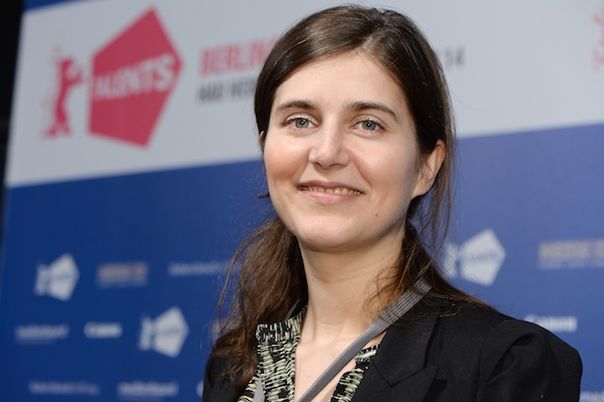Professional Intimacy
Christina Newland of the 2014 Talent Press in conversation with Anja Marquardt on her debut feature SHE'S LOST CONTROL, which features in the Berlinale Forum section.

Anja Marquardt
German-American director Anja Marquardt premiered her debut feature film, SHE'S LOST CONTROL in this year's Berlinale Forum. An alumna of Berlinale Talents, Marquardt used Kickstarter to help fund her project, successfully reaching her goal of $50,000 – though she admits that she disliked being in the spotlight, preferring to “stay behind the camera”.
Marquardt weaves a sparing, naturalistic depiction of a professional sex surrogate, Ronah (Brooke Bloom). Using long zoom lenses and many close-ups on Brooke Bloom's expressive face, the emphasis is on Ronah's compassion and commitment to her work, as well as a growing fondness for one of her clients, Johnny (Marc Menchaca). With an understated style and a steady rhythm, the film articulates a tension between the containment and chaos in Ronah's life, something Anja addresses. “We tried to use available daylight whenever possible, but, with some kind of edge, an aesthetic perspective. We wanted her life to feel contained in some respects, and on the edge in others.”
I met with Anja after a screening and Q+A about the film, to discuss her approach to filmmaking, her experience at the Berlinale, and the concept of “professional intimacy” that pervades her film. She previously mentioned that she had made a tough decision in postponing principal photography for six months following a last-minute change in casting. I queried her on the topic, wondering if, as a first-time female filmmaker, people second-guessed her choices. “You do have people second-guess you, and it may come from people who don't know you or it may come from people you know, but in the end you really can't allow it to effect your work. If you allow people to second-guess you, then you second-guess yourself, and that's a dangerous path.”
The performances are central in SHE'S LOST CONTROL, and in such a carefully constructed film, I ask Anja what approach she took in directing her actors, and using improvisation. “Brooke, Mark and I sat down and talked about the script, and the intention behind each scene, and I think we were very much in agreement about the emotional trajectory of the characters. There were some scenes we adjusted, but there wasn't a lot of room to improvise. We did have a few scenes where I really wanted to, but those were booked into the shooting schedule. Most scenes, we just did them, and mostly shot them in rehearsal. Brooke and Marks first takes were often really great.”
Aided by such performances, the film successfully interrogates modern alienation and the controversial use of “partner's therapy“ as an idiosyncratic answer some turn to, with varying degrees of effectiveness. Born and raised in Berlin, Anja comments on premiering at Berlinale: “It's amazing, and Berlin is my home, so it was such a wonderful experience to premiere at the Berlinale. It was really the best I could have dreamed of.”

